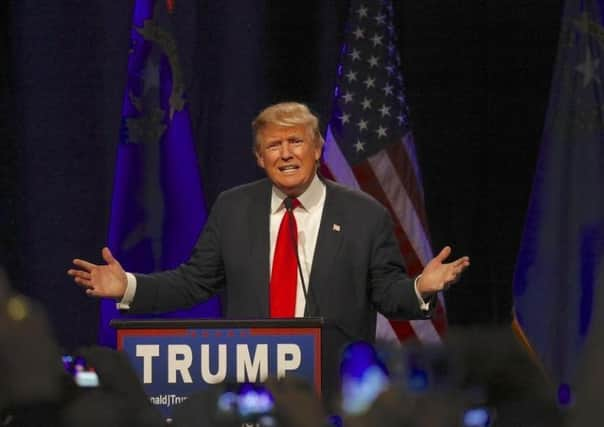Analysis: After Trump and Brexit, pundits should stop talking about votes that will '˜never happen'


But another category of pundit deserves scrutiny.
It is the informed (often very informed) person who said, all confidently, that Scotland won’t vote to the quit the UK, and then felt vindicated by the Scottish 2014 referendum.
The same type of person somehow felt sure that Brexit would not happen, but it did.
Advertisement
Hide AdAdvertisement
Hide AdAnd then they were confident that Trump would not be elected president, but he was.
How could people have been confident of any of these things? Once polls showed (as at points they did in all three of those elections) that victory for the underdog was possible, then it was always possible.
But some people seemed confident that while support for the ‘impossible’ verdict might rise to, let us say, 45.3% of the vote or, perhaps, 47.6%, or maybe 49.8% it would not hit 50.1% – oh no.
Was there some magic element in the ether that takes revolutionary public votes only so far, but no further, and never to a level where they actually happen?
Advertisement
Hide AdAdvertisement
Hide AdSuch predictions have now been disproved. There are some elections where views are so entrenched, such as a border poll in Northern Ireland, that there will only ever be a certain amount of movement, and usually within one side of the tribal divide. But if an electorate is open to various options, such as who will be US president, then once support rises above a certain level, say 45%+, it is very hard to predict where it will end.
There might be one day of the week when it the said vote would succeed, and another when it would fail. There might be thousands or even millions of people who think it won’t happen, and so vote for it as a ‘protest’ vote.
The pollsters are having a heck of a time trying to track public mood on these matters, so it is hard for anyone else to be confident that X or Y will never happen.
I did not predict Brexit or Trump (although in early June I did investigate betting on ‘a double’) but I am not surprised by either. My time in America over the last week has merely convinced me that there is indeed a ‘shy’ voter, who is not candid with pollsters.
Advertisement
Hide AdAdvertisement
Hide AdWho is surprised at this? If expressing blunt views about Islam (at a time of a grave Islamic terrorist threat) can place you in the dock, as, shamefully, it did Pastor McConnell, or if suggesting that children might be best brought up by a mother and a father can make you a pariah, no wonder some people increasingly keep their views private: as English voters did in the 2015 general election, NI voters did in May, British voters did in the Brexit vote and now Americans have done.
Last week I made clear my own concerns about a Trump presidency and, after talking to over 100 voters at places such as North Carolina (above) and Florida and Washington DC, I found little enthusiasm for him. But they were even more hostile to Mrs Clinton.
Americans are wary of their president elect, including perhaps half of those who backed him. But Americans are also optimists, and believe deeply in the presidency so now they just want it to work.
His victory speech and civilised conduct in the White House this week gives some grounds for hope that it might.
• Ben Lowry (@BenLowry2) is News Letter deputy editor
Advertisement
Hide AdAdvertisement
Hide Ad